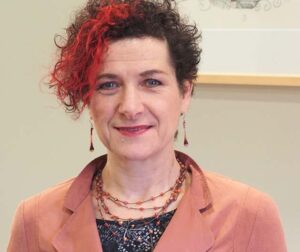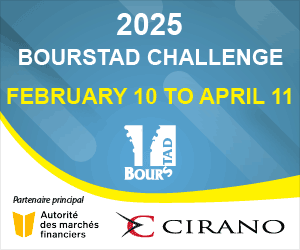Dr. Dorota Glowacka, Holocaust scholar and professor in the Contemporary Studies Program, is the Principal Investigator for a Connections grant awarded by the Social Sciences and Humanities Research Council of Canada (SSHRC).
This SSHRC grant will allow for the creation of a week-long workshop, "Trauma, Memory and Material Culture," a collaboration between the National Museum of the American Indian (NMAI) and the United States Holocaust Memorial Museum's (USHMM) Mandel Centre for Advanced Holocaust studies. The project is an interdisciplinary, multinational and intercultural effort to put the experiences of Jewish people and Indigenous peoples of North America into meaningful conversation with one another.
Glowacka was in residence at the Mandel Centre until 2017, where she studied intersections between the Holocaust and settler-colonial genocide in North America. She describes this workshop as "a flourishing of what I've always wanted to do, but I can now put it in a more tangible form."
This grant is a follow-up from a wider partnership she is part of, called "Thinking Through the Museum," a multi-million dollar project involving critical investigation into museums with the intention to decolonize and promote knowledge sharing.

Dr. Glowacka
The workshop will take place in May of 2023 and involve ten interactive workshop sessions and four guided tours of museum spaces with students, scholars and professionals from diverse disciplines and backgrounds. Partnership and relationship building between participants is the foundation of this workshop.
Recalling the moment when the idea for this area of study came to be, Glowacka discussed a talk from Daniel Paul about his book "We Were Not the Savages." She was struck by the quotation he opened with: "First they came for the Communists ."
"That, for me, was really intriguing, to see a Mi'kmaw historian open up his talk with a reference to the Holocaust."
She credits Daniel Paul with sparking her interest in this rich intersection. She had many meaningful conversations with him and has continued to make connections with Indigenous scholars over the years. Exploring Jewish and Indigenous experiences of genocide and trauma has become transformative for Glowacka's body of work. "It's incredible how many intersections we find," she says. "My thinking about the Holocaust has changed completely as a result."
This "Trauma, Memory and Material Culture" workshop will explore Jewish and Indigenous experiences for the purpose of illuminating one another. This motivation challenges the idea of "competitive suffering" in order to create opportunities for meaningful exchange, which includes considering how Jewish and Indigenous connections can create spaces for intercultural communities of remembrance. This project will look at decolonization as a transformational process rather than an abstraction or metaphor. It will involve critical inquiry into the two institutions' involvement in histories of colonial violence.
Glowacka co-applied for this grant with her colleague Jason Chalmers, a postdoctoral fellow at Concordia studying settler colonialism in Canada and its relation to museology. Throughout the project, she has worked with Research Assistant Krista Collier-Jarvis, a Mi'kmaw PhD candidate in the English Department at Dalhousie. Whether it is among students in the classroom or professionals in her field, Glowacka takes a relationship-based approach to academic work. "Academic research is not this solitary project," she explains. "I'm in favor of doing a collaborative project and writing and thinking together I think of it as like co-thinking and co-imagining."
This workshop is just the beginning. The project's vision is to publish its findings as academic works and hold public events exploring the workshop's central themes. Glowacka knows that sharing knowledge and building connections come first during the workshop. "We're not thinking about books we'll write eventually We just really enjoy learning from each other. And just frankly, companionship. I think that's redefining what academia's all about."
Trauma, memory, and material culture: A conversation between the National Museum of the American Indian and the United States Holocaust Memorial Museum is supported in part by funding from the Social Sciences and Humanities Research Council.
King's also benefits from federal indirect cost of research funding that supports a vibrant research environment. The Research Support Fund supports a portion of the costs associated with managing the research funded by the Canadian Institutes of Health Research, Natural Sciences and Engineering Research Council, and Social Sciences and Humanities Research Council, such as salaries for staff who provide administration support, training costs for workplace health and safety, maintenance of libraries and laboratories, and administrative costs associated with obtaining patents for inventions.













